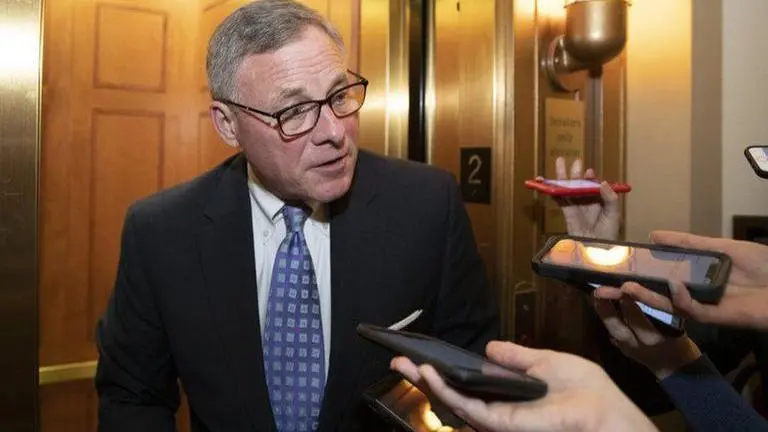Updated 21 March 2020 at 10:46 IST
GOP senator under scrutiny for stock trades
Senate Intelligence Committee Chairman Richard Burr, R-N.C., is asking for an ethics review after coming under criticism for selling off as much as $1.7 million in stocks just before the market dropped in February amid coronavirus fears.
- World News
- 3 min read

Senate Intelligence Committee Chairman Richard Burr, R-N.C., is asking for an ethics review after coming under criticism for selling off as much as $1.7 million in stocks just before the market dropped in February amid coronavirus fears.
Senate records show that Burr and his wife sold between roughly $600,000 and $1.7 million in more than 30 separate transactions in late January and mid-February, just before the market began to fall and as government health officials began to issue stark warnings about the effects of the virus. Several of the stocks were in companies that own hotels.
In a statement Friday morning, Burr said he had asked for the Senate Ethics Committee to investigate the matter, “understanding the assumption many could make in hindsight.”
The stock sales were first reported by ProPublica and The Center for Responsive Politics.
Advertisement
Most of them came on Feb. 13, just before Burr made a speech in Washington, D.C., in which he predicted severe consequences from the virus, including closed schools and cutbacks in company travel, according to audio obtained by National Public Radio and released Thursday.
Karl Evers-Hillstrom, a reporter with the Center for Responsive Politics spoke to AP about what he found when he looked at records about Burr's transactions.
Advertisement
"When I found that senator Richard Burr of North Carolina had sold 33 positions in one day and didn't buy any new ones, and he did so right before the market started to crash, it really peaked my interest," Evers-Hillstrom said.
"Especially so when the NPR report came out that he was reassuring people in public about the government's ability to fight the virus, but in private was telling folks that this was going to be really bad."
Burr said he relied “solely on public news reports,” to make the financial decisions.
There is no indication that Burr, who is not running for reelection when his terms ends in 2022, had inside information as he sold the stocks. The intelligence panel he leads did not have any briefings on the pandemic the week when most of the stocks were sold, according to a person familiar with the matter. The person declined to be identified to discuss confidential committee activity.
Senators did receive a closed-door briefing on the virus on January 24, which was public knowledge. A separate briefing was held February 12 by the Senate Health, Education, Labor and Pensions Committee, which Burr is a member of. It's unclear if he attended either session
Evers-Hillston says that during the Great Recession, members of Congress were not closely scrutinized for their stock transactions.
"Some good government groups are now urging members to either divest fully from their assets, or put them in some sort of blind trust where you can say, I'm not touching this," Evers-Hillstrom says.
"And I think it is very important to do that to reduce the corruption, or even more importantly the appearance of corruption."
For most people, the virus causes only mild or moderate symptoms, such as fever and cough. For some, especially older adults and people with existing health problems, it can cause more severe illness, including pneumonia. The vast majority of people recover from the new virus.
According to the World Health Organization, people with mild illness recover in about two weeks, while those with more severe illness may take three to six weeks to recover.
The coronavirus has infected more than 246,000 people and killed more than 10,000. Almost 86,000 people have recovered so far, mostly in China.
Published By : Associated Press Television News
Published On: 21 March 2020 at 10:46 IST
